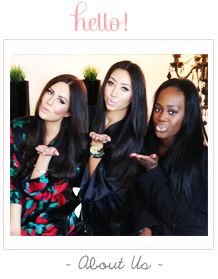In a world of social media posts, emails, and essays, there's one thing that you can do to make your writing stand out above the rest: keep it short & sweet. Trimming out the "fluff" and filler words is helpful for many reasons... it keeps your writing to the point, and it also makes your statements more powerful. Ever had to write a paper or a resume where you're trying to stick within a certain word count? Those unnecessary words could be holding you back. Read below for our list of words to cut from your writing, and give your message more meaning!
1. Amazing. Using the word "amazing" isn't as amazing as it sounds. This word is so overused, that the intention behind it is often not conveyed. Be more creative; not everything is amazing.
2. Awesome. In a similar category as "amazing," "awesome" lacks descriptiveness. Plus, this word can also be used with sarcasm intended, so the meaning behind your writing might be misinterpreted. It also can sound immature... as in, "yeah bro, that's awesome!" Drop this word.
3. Very. If you're trying to be very convincing with your statement, using the word "very" might not be the best way to get your point across. Instead of saying "it was a very hot summer day," simply stating "it was a hot summer day" works just as well to give the message.
4. Really. Similar to "very," this is also a weak word that isn't needed to place emphasis on your statement.
5. Perhaps/Maybe. Why are you uncertain? Be bold with your words, and drop these words that make you seem unsure.
6. Literally. Okay, I literally can't even. Besides the fact that this statement makes no logical sense (yes, it's true!) using the word "literally" doesn't help to clarify anything. Compare "I literally had the most delicious cupcake" to "I had the most delicious cupcake"... which cupcake sounds more delicious to you?
7. Just. This word is simply a filler that can be cut. Saying "I feel" instead of "I just feel" is a more powerful statement.
8. Honestly. Using the word "honestly" doesn't make you sound more honest. Instead, it makes the reader question if everything else you're saying is untrue.
9. Actually. When something actually is a certain way, using the word "actually" isn't needed.
10. Nice. This word is so commonplace, that it sounds somewhat empty and lackluster. Instead, try to pick a word that is more specific and engaging.
Take a step back and look at the words you use, and see if these little fillers can be removed. You'll find that your message feels stronger, and more powerful!
What other fluff words can you avoid? Share with us below!



































